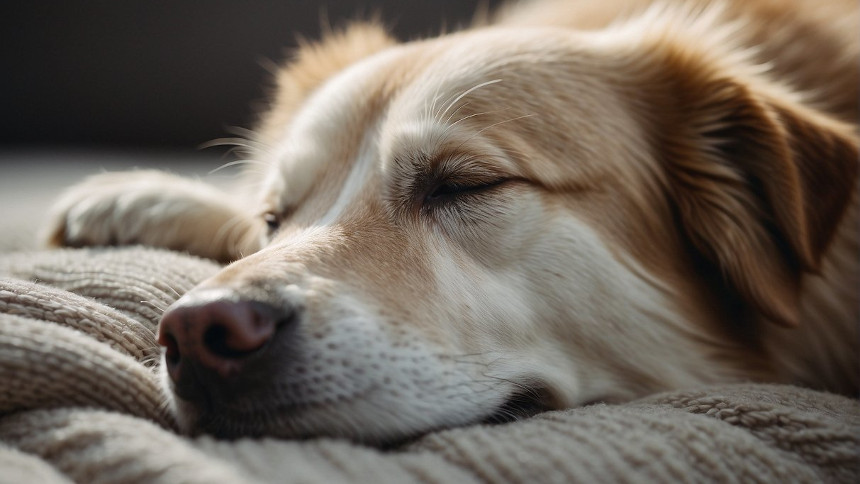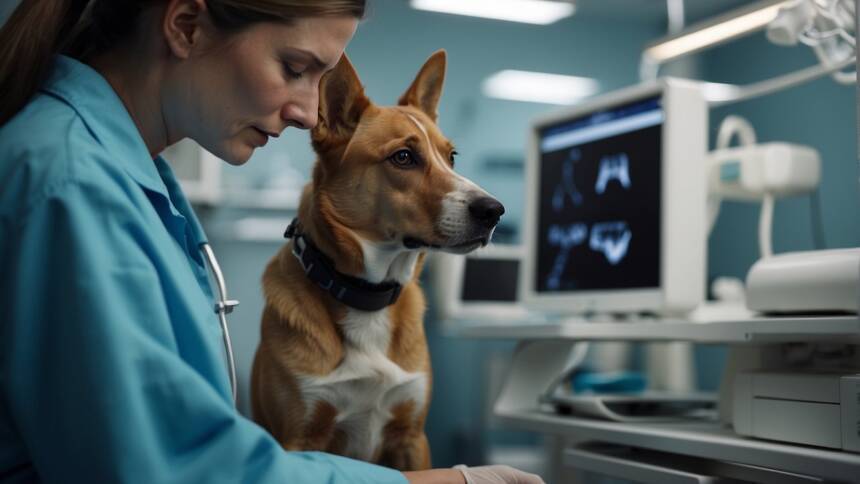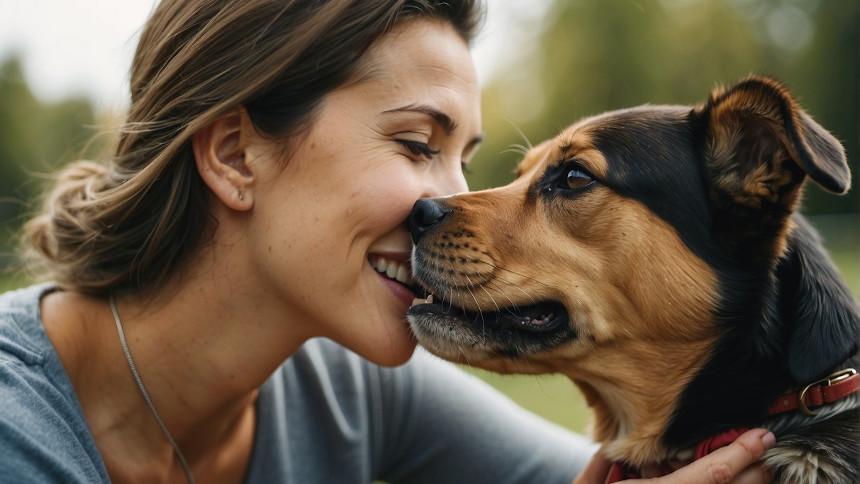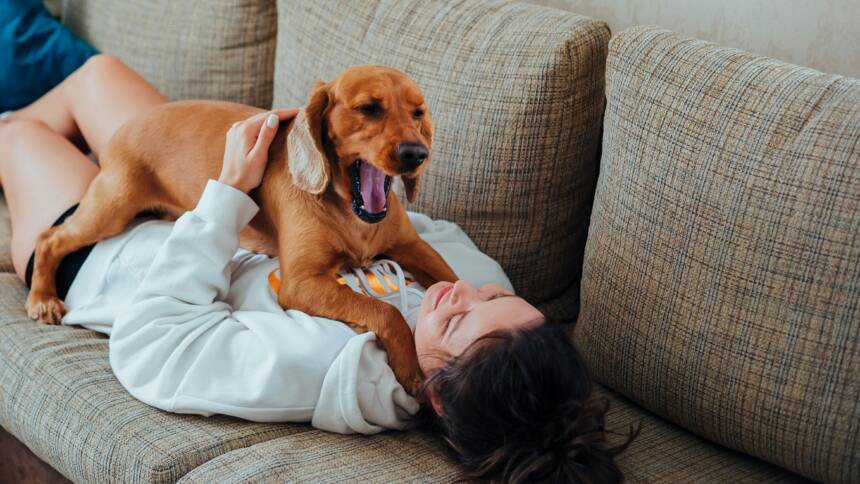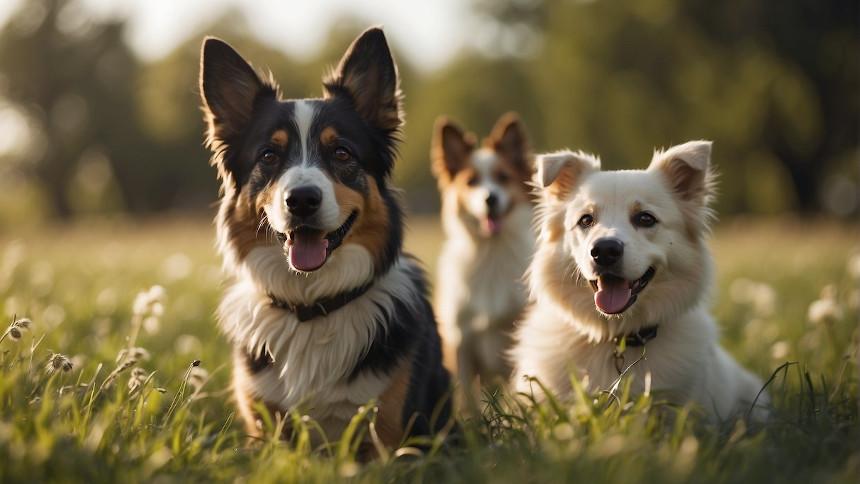Dog jaw spasms during sleep can be a concerning sight for pet owners. When a dog experiences a jaw spasm, it may look similar to chattering or quivering of the mouth, and these involuntary movements are often rhythmic in nature. Not all jaw spasms are a sign of distress; some may be benign twitches that occur as a dog dreams or transitions between sleep stages. However, they can sometimes indicate underlying health issues.
Several factors can cause jaw spasms in dogs, ranging from dental problems to neurological conditions. Common dental issues such as tooth decay, gum disease, or a chipped tooth can cause discomfort and result in spasms or chattering. Neurologically, conditions like focal motor seizures or other disorders that affect muscle control can lead to spasms even during rest. It’s also possible for such spasms to occur as a reflexive response to pain being experienced somewhere else in the body.
Understanding the context and frequency of a dog’s jaw spasms is crucial. Occasional spasms may not be a cause for concern, but if they are frequent or accompanied by other signs of distress, it is advisable to consult a veterinarian. A professional can help determine if the jaw spasms are symptomatic of a more serious condition that requires treatment. Regular veterinary check-ups and good oral hygiene practices can help maintain a dog’s overall health and potentially reduce the likelihood of spasms related to dental pain.
Understanding Dog Jaw Spasms
When a dog experiences jaw spasms during sleep, concerned pet owners should be aware of the symptoms, underlying causes, and the basic anatomy involved. Recognizing and understanding these spasms can lead to early detection and treatment of potential health issues.
Symptoms and Signs
Dog jaw spasms, or involuntary muscle contractions, may manifest as chattering teeth, quivering of the jaw muscles, or grinding of the teeth during sleep. Owners might also observe changes in the dog’s gait or posture as a result of discomfort caused by muscle spasms.
- Chattering Teeth: Quick, rhythmic tooth clicking
- Jaw Quivering: Visible trembling of the jaw
- Teeth Grinding (Bruxism): Audible scraping of teeth against each other
Common Causes
Several medical conditions can cause jaw spasms in dogs:
- Dental Issues: Pain from tooth decay or gum disease
- Neurological Issues: Focal motor seizures or other neurological conditions
- Distemper: A viral disease affecting the nervous system
- Seizures in Dogs: Can cause distinctive muscle contractions during various states of consciousness, including sleep
A thorough physical examination and detailed medical history are crucial in diagnosing the cause of dog jaw spasms. Neurological examinations may be required to identify specific neurological conditions.
Anatomy and Physiology of Canine Jaw
The canine jaw’s function relies on the coordinated action of several muscles, including the masseter and temporalis, which control chewing and jaw movement. Diseases or injuries affecting these muscles or the nerves supplying them can result in jaw spasms. Similarly, muscle contractions caused by a neurological condition could disrupt the normal function of these muscles.
- Masseter Muscle: Principal muscle for chewing
- Temporalis Muscle: Assists in closing the jaw
- Neurological Control: Nerves govern jaw muscle coordination and function
Diagnosis of Canine Jaw Spasms
Diagnosing jaw spasms in dogs requires a systematic approach to determine the underlying cause. A veterinarian typically follows a combination of procedures and testing to accurately diagnose the condition.
Veterinary Procedures
The initial step in diagnosing canine jaw spasms involves a thorough veterinary examination. The veterinarian will observe the dog’s physical symptoms and inquire about its medical history. Neurological examinations may be conducted to assess nerve function. In some cases, a nerve conduction study can be helpful to evaluate the health of the peripheral nerves and muscle responses.
Imaging and Blood Tests
For a more detailed internal view, imaging tests such as X-rays and CT scans may be employed to check for any abnormalities in the dog’s skull or brain that could be causing the spasms. Furthermore, blood tests are crucial in diagnosing medical conditions that might contribute to jaw spasms; they can detect infections, metabolic diseases, or other systemic conditions. These tests provide critical data, aiding the veterinarian in formulating an accurate diagnosis.
Treatment and Management
When addressing dog jaw spasm during sleep, treatment focuses on mitigating underlying causes and managing symptoms. A comprehensive approach may involve medication, therapies, and behavioral strategies.
Medication and Therapies
Medications are often prescribed to manage the spasms and any associated pain. Muscle relaxants can be an effective treatment option for relaxing the jaw muscles and alleviating spasms. If a neurological condition is the root cause, specific medications targeting that condition, such as anticonvulsants, may be recommended. It’s essential to follow a veterinary care plan, as they will prescribe the appropriate medication dosage and frequency.
Physical therapy can also serve as a supportive treatment — it may include exercises to strengthen the jaw muscles and reduce the frequency of spasms. Additionally, proper hydration is essential, as electrolyte imbalances can contribute to muscle spasms; ensuring the dog has constant access to fresh water can help maintain hydration levels.
Lifestyle and Behavioral Strategies
Behavior modification techniques can sometimes reduce stress-related spasms. Providing a calm sleeping environment and minimizing disturbances can help prevent spasms triggered by stress or environmental factors.
Additionally, regular dental care is crucial; maintaining good oral hygiene can prevent dental issues that might cause jaw spasms. This includes regular tooth brushing and providing dental chews.
Owners should monitor their dogs for signs of discomfort or changes in behavior that could indicate an issue requiring veterinary attention. Prompt action and lifestyle adjustments can be key components of an effective management strategy.
Preventive Measures and Dog Care

Taking proactive steps in dental hygiene and ensuring proper nutrition are essential for preventing jaw spasms during sleep. These efforts can mitigate dental ailments and dehydration, which are potential contributors to spasms.
Dental Hygiene and Regular Checkups
Dental Health: A dog’s dental health is paramount in preventing jaw spasms. Regular teeth cleaning, both at home and through professional dental procedures, can prevent the buildup of plaque and tartar. It also helps stave off periodontal diseases which may cause spasm-inducing discomfort.
- Daily Maintenance:
- Brush the dog’s teeth with toothpaste specifically designed for canine use.
- Provide dental chews that help scrub the teeth clean.
- Professional Care:
- Schedule annual checkups to assess oral health.
- Obtain dental radiographs to monitor for any hidden dental problems.
Dental Procedures: When issues like tooth decay or gum disease are identified, timely dental procedures can address pain and prevent spasms. Veterinary dental specialists can perform cleanings, extractions, or other necessary interventions.
Diet and Hydration
Diet: A nutrient-rich diet supports overall health and can indirectly prevent dental issues that lead to spasms. Hard kibble can help with mechanical teeth cleaning, while certain diets may be formulated to support dental health.
Hydration:
- Ensure constant access to fresh water to prevent dehydration.
- Water aids saliva production which is critical for natural oral cleansing.
By maintaining diligent dental hygiene and a suitable diet, along with regular veterinary checkups, owners can reduce the likelihood of their dogs experiencing jaw spasms during sleep.
When to Seek Veterinary Help
In dogs with jaw spasms, identifying signs of pain and behavioral changes is crucial. Guardians should monitor the severity of symptoms and understand when a visit to the veterinarian is warranted.
Recognizing Emergencies
- Signs of Pain: Dogs may exhibit pain through whining, yelping, or reluctance to eat. If spasms occur with clear discomfort, urgent veterinary care is needed.
- Behavioral Changes: Sudden aggressiveness or withdrawal can indicate severe discomfort or underlying trauma, prompting an emergency visit.
- Severity and Frequency: An increase in the frequency or severity of spasms, especially if accompanied by drooling or difficulty breathing, merits immediate attention.
Post-Treatment Follow-Up
- Monitoring: After treatment, guardians should watch for any new or recurring symptoms, which could necessitate a follow-up.
- Changes in Condition: Should the dog’s condition worsen, or if injury-induced spasms do not abate, they must be reassessed by a professional.
Guardians play an essential role in managing their dog’s jaw spasm episodes, ensuring timely medical intervention to maintain their pet’s wellbeing.
FAQs and Myths about Dog Jaw Spasms
When it comes to dog jaw spasms during sleep, pet owners commonly encounter various concerns and myths. This section aims to clarify these issues and correct widespread misconceptions.
Addressing Common Concerns
Q: Can neurological disorders cause jaw spasms in dogs while they sleep?
A: Yes, certain neurological conditions, such as focal motor seizures, may result in muscle spasm in dogs, including jaw movements during sleep.
Q: What health concerns are associated with teeth grinding (bruxism) in dogs?
A: Bruxism can suggest underlying health issues such as dental pain or stress and, if persistent, may lead to further dental wear and discomfort.
Debunking Misconceptions
Myth: Jaw spasms are always a sign of neurological damage.
Fact: While they can be a symptom of neurological issues, jaw spasms in dogs can also be due to less serious causes, such as dental discomfort or even colder temperatures.
Myth: Jaw spasms or teeth chattering in dogs are purely psychological.
Fact: These occurrences often have a physical origin — dental problems, pain, or even congenital causes — rather than being solely psychological responses.
